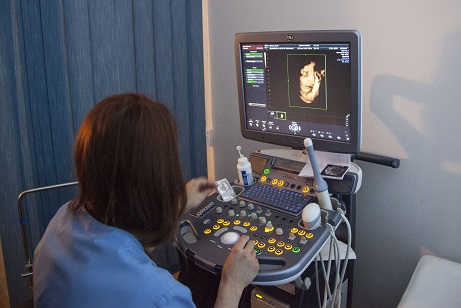WHO and World Bank praise Georgia’s state health system

The World Health Organisation (WHO) and the World Bank have positively assessed the progress and achievements of Georgia’s Universal Healthcare Program.
Today Georgia’s Minister of Healthcare David Sergeenko presented the report Progress of the Universal Healthcare Program and the International Rating with experts from the WHO and the World Bank.
The report showed Georgian citizens now had better access to healthcare services than before the program launched.
The main findings of the research were:
- The state financed more medical services: 41 percent in 2012 and 95 percent in 2015;
- The share of the out-of-pocket health care cost was reduced: 65 percent in 2015 and 57 percent in 2015;
- The number of outpatient visits per person declined: 2.3 percent in 2012 and six percent in 2015;
- Hospitalisation per 100 inhabitants: 11.3 percent in 2012 and 12 percent in 2015;
- The share of public expenditure on health to Gross Domestic Product (GDP) increased: 1.8 percent in 2012 to three present in 2015;
- Financial protection of the target population – four percent;
- Expenditures on healthcare from the state budget also increased – five percent in 2012 to seven percent in 2015.

Today Georgia’s Minister of Healthcare presented report by the WHO and the World Bank about the Universal Healthcare Program. Photo by Georgia's Finance Ministry.
The research found that despite the fact the health budget had increased two-and-a half times in the past three years, the state funds allocated to the health sector still remained low compared to other countries in Eastern Europe. This meant Georgia should do its best to pay attention to this issue and further increase the financing of healthcare, noted the report.
Statistics showed more than 600,000 people – about 17 percent of the population – used private corporate insurance this year in Georgia, while 4,300,000 citizens of Georgia including those living abroad were the beneficiaries of the Universal Healthcare Program.
This is a part of the population with high or average income and the Government does not spend money on them but directs the money to those who have a low income, are socially vulnerable or require more support from the Government,” said Sergeenko.
He said the Government of Georgia will not make changes to the system of the Universal Healthcare Program however will consider a number of reforms to make it more effective.
Creating universal health insurance was one of the Georgian Dream coalition’s election promises in 2012. This program came into force a few months after the election, on February 28, 2013. On July 1 the program was expanded to also include medical services during pregnancy and treatment for cancer patients. Thanks to the program, state-sponsored health insurance became available on massive scale to people who would not otherwise be able to afford it.
 Tweet
Tweet  Share
Share